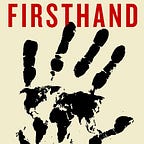Awaken the Archive
Why I’m releasing a collection of remastered stories.
The internet is often portrayed as a threat to the writing profession. Curse you, content providers who work for peanut fragments. It isn’t, though.
Before the Digital Age, content was locked on paper or microfiche (and no one called it “content”). Readers had a limited window of time during which they could catch magazine stories before they were essentially gone. Writers, meanwhile, had to order extra copies and make photocopies to send to editors, friends, and Mom.
Today’s works obviously aren’t confined to the world of the tactile. That doesn’t make them accessible, though. Articles and books are scattered across the internet in various forms of design, readability, and freedom. That impracticality makes them effectively invisible.
But with new digital publishing tools, archives can be transformed. They can become as dynamic and accessible as writers choose to make them. As reading on screens becomes increasingly popular, and as longform enjoys something of a renaissance, why not give collected works a Digital Age spin?
The benefits are many. Readers get exposed to writing they may have missed the first time around (ICYMI), as well as bonus material, multimedia extras, and an inside look at the writing process. Writers get to breathe new life into projects they loved, expand their audience, and potentially generate revenue.
There is also intellectual value in works that weren’t published this morning. Some writing, especially longer pieces about meaty subjects, can matter as much—if not more—today as when the story was originally published. The passage of time has an illuminating power.
In my newly released collection, Firsthand, a story about the Hanford Nuclear Reservation in Washington typifies this sense of time-altered reading. It was written well before the Fukushima disaster, yet when I read it now, Fukushima keeps wending its way into my thoughts.
So writers: Don’t let your best work molder away unread in some dark corner of the Web. Readers: Don’t let them. In the future, remastered collections, made possible by the internet, might just prove to be a boon for everyone.
Now, the practicum. Here are the basics for converting your greatest hits into a compilation:
- Go to the articles page on your website. Gather together some favorites. Be selective; less is often more. If you have a book or some books, grab a few chapters.
- Sort out rights. What articles do you own? Which ones could you re-print or re-publish? Even if you don’t own rights to book content, maybe your publisher will permit use of the material for this purpose. (Thank you, Perseus!)
- Add value. I’m a big fan of Creatavist, but the goal is the same no matter the production tool: A smooth reading experience with carefully selected extras seamlessly woven into the prose.
You’re done. Now go share your stuff!
